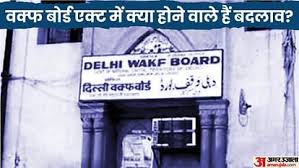NEW DELHI: A bill to amend the law governing Waqf boards has proposed far-reaching changes in the present Act, including ensuring the representation of Muslim women and non-Muslims in such bodies.
The Waqf (Amendment) Bill, set for introduction in the Lok Sabha, also aims at renaming the Waqf Act, 1995, as the Unified Waqf Management, Empowerment, Efficiency and Development Act, 1995.
The bill was circulated among Lok Sabha members on Tuesday night ahead of its introduction.
According to its statement of objects and reasons, the bill seeks to omit Section 40 of the current law relating to the powers of the board to decide if a property is Waqf property.
It provides for a broad-based composition of the Central Waqf Council and the State Waqf Boards and ensures the representation of Muslim women and non-Muslims in such bodies.
The bill also proposes the establishment of a separate Board of Auqaf for the Boharas and Aghakhanis. The draft law provides for the representation of Shias, Sunnis, Bohras, Agakhanis and other backward classes among Muslim communities.
The bill also aims to clearly define “‘Waqf’ as Waqf by any person practising Islam for at least five years and having ownership of such property”.One of its objectives is streamlining the manner of registration of Waqfs through a central portal and database. A detailed procedure is established for mutation as per revenue laws with due notice to all concerned before recording any property as a Waqf property.
The Wakf Act, 1995, was brought to regulate ‘Auqaf’ (assets donated and notified as Waqf) by a ‘wakif’ (the person who dedicates a property for any purpose recognised by Muslim law as religious or charitable).
The Act was last amended in 2013.


